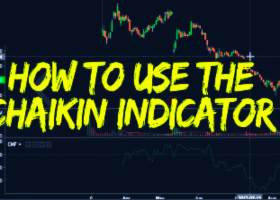Here is their view, courtesy of eFXnews:
In Q4 2016, the new prime minister triggers Article 50 of the EU Treaty by notifying the EU that the UK intends to leave. That opens a two-year window for negotiating a withdrawal agreement. But it seems unlikely that the ultimate relationship between the UK and the EU will be agreed within the two-year timeframe.
Background: Last week PM Cameron said he would step down in the autumn and leave it to the next prime minister to decide when to notify the EU about the intention to leave. A likely leadership battle within the Conservative Party could delay the government’s invoking Article 50. Moreover, the new PM and his cabinet will need time to come up with a coherent plan for the future relationship with the EU (no such plan exists at this point). This could postpone the notification until early 2017, a risk which would be aggravated in case of an early general election in the autumn.
The EU referendum was advisory and non-binding. Thus, the UK’s next prime minister is under no legal compulsion to act on the result. A new premier could, in theory, go back to the EU and ask to negotiate a new deal before taking it back for a second vote. But this option has been ruled out by EU leaders. Moreover, it would be very difficult to ignore the views of the 17.4 million people who voted to leave. Thus, the minimum requirement would probably be a general election victory for a party that had promised explicitly to think again.
Scenario 1: Brexit and free trade agreement (70% probability)
Although EU leaders are pressing the UK to move quickly, only the UK can decide when to invoke Article 50. In other words, the EU cannot force the UK to do so.
]The UK will try to negotiate a tailor-made free trade agreement (FTA) with the EU. Due to the mutual economic dependency between the UK and the EU, the UK will eventually, after several years of negotiations, end up with a deal which ensures continued access to the EU internal market, including services. But UK companies, including financial institutions, will get somewhat less access than they have today. But for an extended period after the notification it will remain very unclear for financial market participants what type of post-exit arrangement (Norway/EEA model, Swiss, Canada etc) the UK will end up with. If the two-year negotiation period comes to an end with no deal, it can only be extended by a unanimous decision of the other 27 EU countries. If there is neither a deal nor an extension, the UK leaves automatically and trades with the EU countries on WTO rules. Any EU deal with the UK must be approved by a qualified majority of 65% of member states.
Scenario 2: No Brexit, return to status quo (30% probability)
We assign a probability of 30% to the following political risk scenario: Brexit will never happen – the UK will never trigger Article 50. Background: Due to adverse developments in financial markets and the economy plus mounting concerns about a dismantling of the UK, the new PM and his cabinet will have second thoughts about the commitment to accept the EU referendum. This could trigger a Brexit vote in Parliament or a general election, in which the government advocates a renegotiation with the EU. The longer Article 50 is put off, the greater the chance it will never be triggered. With a delay in triggering Article 50 to the end of this year, or possibly longer, the anti-Brexit movement within Parliament is likely to gain ground. Ahead of the Brexit vote, the majority of MPs favoured staying in the EU.


